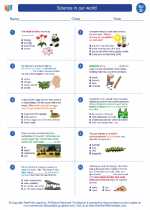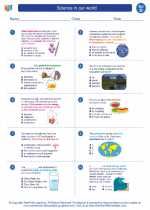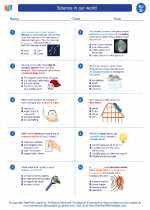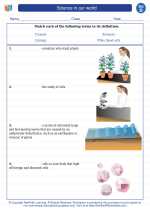Mechanical Systems
A mechanical system is a collection of interconnected components that work together to perform a specific task. These systems use mechanical energy to accomplish various functions, such as moving, lifting, or transforming materials.
Key Components of Mechanical Systems
- Input: The force or energy applied to the system
- Mechanical elements: Such as gears, levers, pulleys, and wheels
- Output: The result of the system's operation, such as movement or the application of force
Examples of Mechanical Systems
There are numerous examples of mechanical systems in everyday life, including:
- A bicycle, with its gears, chains, and wheels
- A crane, which uses pulleys and levers to lift heavy objects
- An escalator, which employs a combination of gears, belts, and motors to move people between floors
Study Tips for Understanding Mechanical Systems
To better understand mechanical systems, consider the following study tips:
- Learn about simple machines, such as levers, pulleys, and inclined planes, and how they are used in mechanical systems
- Explore real-world examples of mechanical systems and analyze how they function
- Understand the concept of mechanical advantage and how it applies to different types of systems
Conclusion
Understanding mechanical systems is crucial for grasping the fundamental principles of engineering and physics. By studying the components, functions, and applications of these systems, you can gain valuable insights into the world of mechanics and technology.
.◂Science Worksheets and Study Guides Fourth Grade. Science in our world
Study Guide Science in our world - 4th gr.
Science in our world - 4th gr.  Worksheet/Answer key
Worksheet/Answer key Science in our world - 4th gr.
Science in our world - 4th gr.  Worksheet/Answer key
Worksheet/Answer key Science in our world - 4th gr.
Science in our world - 4th gr.  Worksheet/Answer key
Worksheet/Answer key Science in our world - 4th gr.
Science in our world - 4th gr.  Vocabulary/Answer key
Vocabulary/Answer key Science in our world - 4th gr.
Science in our world - 4th gr. 

 Worksheet/Answer key
Worksheet/Answer key
 Worksheet/Answer key
Worksheet/Answer key
 Worksheet/Answer key
Worksheet/Answer key
 Vocabulary/Answer key
Vocabulary/Answer key

The resources above cover the following skills:
History and Nature of Science: A student should understand the history and nature of science. A student who meets the content standard should:
Develop an understanding that historical perspectives of scientific explanations demonstrate that scientific knowledge changes over time, building on prior knowledge.
Develop an understanding that scientific knowledge is ongoing and subject to change as new evidence becomes available through experimental and/or observational confirmation(s).